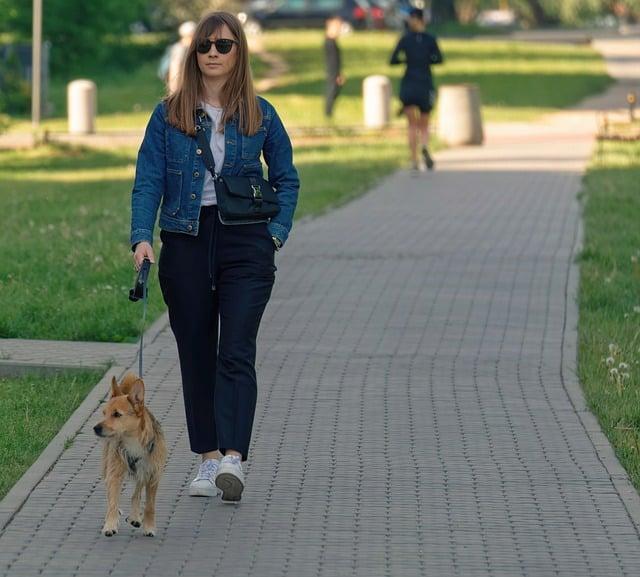Imagine a family living in a quiet neighborhood, feeling secure until one evening, they hear a rustle outside. They wish they had a guard dog, but training one seems daunting. Enter the Labrador Retriever—a breed known for its intelligence and eagerness to please. With consistent training and positive reinforcement, this friendly giant quickly learns commands and protective instincts. In just a few weeks, the family feels safer, knowing their loyal Labrador is not only a loving companion but also a reliable guardian. Choose wisely; the right dog can transform your home into a fortress.
Contents
- Understanding the Traits of Easily Trainable Guard Dogs
- Top Breeds Renowned for Their Trainability and Protective Instincts
- Effective Training Techniques for Developing a Reliable Guard Dog
- The Long-Term Benefits of Choosing a Trainable Guard Dog for Your Home
- Q&A
Understanding the Traits of Easily Trainable Guard Dogs
When selecting a guard dog, understanding the traits that contribute to trainability is essential. **Intelligence** is a primary factor; dogs that can quickly grasp commands and concepts tend to be easier to train. Breeds known for their high intelligence, such as the German Shepherd and the Belgian Malinois, often excel in obedience training and can learn complex tasks with relative ease. Their ability to process information quickly allows them to adapt to various situations, making them reliable protectors.
Another important trait is **temperament**. A dog that exhibits a balanced temperament—being both confident and calm—will respond better to training. Dogs that are overly aggressive or fearful may struggle to learn effectively. Breeds like the Rottweiler and Doberman Pinscher are known for their stable temperaments, which make them not only excellent guard dogs but also more receptive to training methods that require patience and consistency.
the **bond** between the dog and the trainer significantly influences the training process. A strong, trusting relationship can enhance a dog’s willingness to learn and follow commands. Engaging in positive reinforcement techniques, such as rewards and praise, fosters this bond. Breeds like the Golden Retriever and the Australian Shepherd thrive in environments where they feel connected to their handlers, making them not only trainable but also loyal companions in their guarding duties.
Top Breeds Renowned for Their Trainability and Protective Instincts
When considering a guard dog, trainability and protective instincts are paramount. Certain breeds stand out for their ability to learn commands quickly and their innate desire to protect their families. These dogs not only respond well to training but also possess a natural vigilance that makes them excellent guardians. Here are some of the top breeds that excel in these areas:
- German Shepherd: Known for their intelligence and versatility, German Shepherds are often employed in police and military roles. Their eagerness to please makes them highly trainable, and their protective nature ensures they will guard your home with unwavering loyalty.
- Rottweiler: Rottweilers are powerful and confident dogs that thrive on structure and leadership. With consistent training, they can become both loving companions and formidable protectors. Their natural guarding instincts make them vigilant watchdogs.
- Doberman Pinscher: Dobermans are renowned for their speed and agility, coupled with a keen intelligence that makes them highly trainable. They form strong bonds with their families and are known for their protective instincts, making them ideal for guarding roles.
- Belgian Malinois: Often used in police work, the Belgian Malinois is a highly intelligent and energetic breed. Their trainability is exceptional, and they possess a strong protective instinct, making them one of the top choices for security and protection tasks.
Each of these breeds offers a unique combination of trainability and protective instincts, making them ideal candidates for anyone seeking a reliable guard dog. Their ability to learn commands quickly allows for effective training, ensuring that they can respond appropriately in various situations. Moreover, their natural protective behaviors mean that they will instinctively guard your home and loved ones.
Choosing the right breed involves considering your lifestyle and training capabilities. While these breeds are known for their trainability, consistent and positive reinforcement training methods are essential to harness their potential fully. Engaging in regular training sessions not only strengthens the bond between you and your dog but also enhances their protective instincts, ensuring they are always ready to defend when necessary.
Ultimately, the best guard dog for you will depend on your specific needs and environment. By selecting one of these top breeds, you can rest assured that you are investing in a loyal companion who is both trainable and protective. With the right training and socialization, these dogs can become not only effective guardians but also beloved family members.
Effective Training Techniques for Developing a Reliable Guard Dog
Training a guard dog requires a blend of patience, consistency, and effective techniques that foster a strong bond between the dog and its handler. One of the most effective methods is **positive reinforcement**, which encourages desired behaviors through rewards such as treats, praise, or playtime. This approach not only motivates the dog but also builds trust, making the training process enjoyable for both parties. By rewarding your dog for good behavior, you create a positive association with the tasks they are learning, which is crucial for developing a reliable guard dog.
Another essential technique is **socialization**. Exposing your dog to various environments, people, and other animals helps them become well-rounded and confident. A well-socialized dog is less likely to react fearfully or aggressively in unfamiliar situations, which is vital for a guard dog. Start socializing your dog early, introducing them to different sounds, sights, and experiences. This will help them distinguish between normal occurrences and potential threats, enhancing their ability to protect you effectively.
Incorporating **obedience training** into your routine is also crucial. Teaching basic commands such as sit, stay, and come lays the foundation for more advanced training. A reliable guard dog must respond promptly to commands, especially in high-stress situations. Consistent practice and reinforcement of these commands will ensure that your dog understands what is expected of them. Additionally, consider using **controlled exercises** that simulate real-life scenarios, allowing your dog to practice their guarding instincts in a safe environment.
Lastly, establishing a **structured routine** is vital for your dog’s training success. Dogs thrive on consistency, and having a regular schedule for training sessions, exercise, and playtime helps reinforce their learning. Set aside dedicated time each day for training, ensuring that sessions are short but focused to maintain your dog’s attention. This structured approach not only aids in developing a reliable guard dog but also strengthens the bond between you and your canine companion, fostering loyalty and trust that are essential for effective guarding.
The Long-Term Benefits of Choosing a Trainable Guard Dog for Your Home
When considering a guard dog for your home, the long-term benefits of selecting a trainable breed can significantly enhance your security and peace of mind. A dog that is easy to train not only learns commands more quickly but also adapts to your family’s lifestyle and routines. This adaptability fosters a strong bond between the dog and its owners, leading to a more harmonious living environment.
Moreover, a trainable guard dog can effectively respond to various situations, ensuring that your home remains safe. With proper training, these dogs can learn to differentiate between normal and suspicious activities, allowing them to alert you to potential threats without unnecessary aggression. This level of discernment is crucial in maintaining a safe yet welcoming atmosphere for guests and family members alike.
Investing in a trainable guard dog also means you can enjoy the benefits of a well-behaved companion. A dog that is responsive to commands can participate in family activities, providing both protection and companionship. This dual role enhances your dog’s quality of life while ensuring that your home remains secure. Additionally, a well-trained dog can be a deterrent to intruders, as the mere presence of a vigilant canine can discourage unwanted visitors.
Lastly, the long-term relationship you build with a trainable guard dog can lead to a more fulfilling experience for both you and your pet. As you invest time in training, you will witness your dog’s growth and development, creating a deeper emotional connection. This bond not only enriches your life but also ensures that your guard dog is motivated to protect and serve your family, making it a valuable asset for years to come.
Q&A
-
What breeds are considered the easiest guard dogs to train?
Some of the easiest guard dog breeds to train include:
- German Shepherds – Known for their intelligence and versatility.
- Labrador Retrievers – Friendly yet protective, making them great family guard dogs.
- Doberman Pinschers – Highly trainable and loyal, they excel in protection work.
- Rottweilers – Confident and strong, they respond well to consistent training.
-
How important is socialization in training a guard dog?
Socialization is crucial for guard dogs. It helps them distinguish between normal situations and potential threats. A well-socialized dog is less likely to react aggressively to unfamiliar people or situations, making them more reliable protectors.
-
What training methods are most effective for guard dogs?
Positive reinforcement is the most effective training method for guard dogs. This approach encourages desired behaviors through rewards, making training a positive experience. Consistency and patience are key to ensuring your dog understands commands and expectations.
-
Can any dog be trained to be a guard dog?
While many breeds can be trained to guard, not all dogs possess the natural instincts required for effective guarding. Breeds known for their protective nature, intelligence, and trainability are typically more successful. However, individual temperament and training play significant roles in a dog’s ability to serve as a guard dog.
choosing the right guard dog can significantly enhance your home’s security. By selecting a breed known for its trainability, you not only ensure safety but also foster a loyal companion. Invest in the right training, and enjoy peace of mind with your new protector.

大家好,我是彼得潘,專業的手法身體治療師。我喜歡探索和研究各種主題,並透過與人工智慧的合作分享專業、實用、有趣的文章。我們定期進行人工審核,以確保內容的準確性。如果您發現文章中有任何不準確的地方,請隨時與我們聯繫,我們會及時糾正。您可以透過 [email protected] 與我們聯繫。



